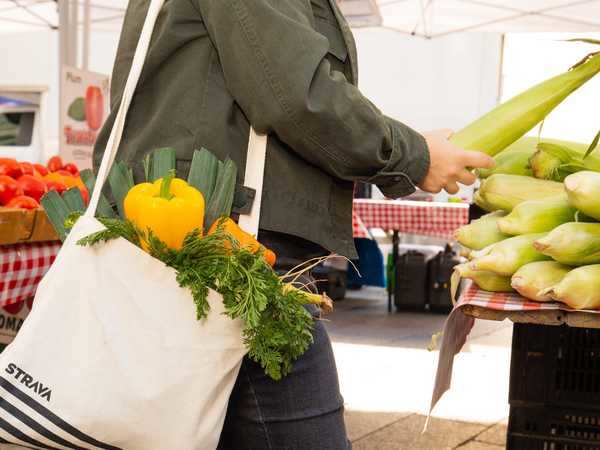
People are taking fewer precautions against the coronavirus while grocery shopping, according to new survey data from the International Food Information Council.
An expert says simple precautions are still important, not just to prevent the spread of the coronavirus but also for general food safety.
The survey data also showed people are more concerned now about being able to afford food as the pandemic has affected joblessness and assistance programs.
As the US surpasses three months of lockdowns to prevent the spread of the coronavirus, consumers are starting to ease up on grocery shopping precautions, according to survey data from the International Food Information Council.
The survey, which involved interviews with 1,000 adults in early May, found that fewer people are washing their hands and sanitizing objects and surfaces after shopping than they were in April. At the same time, people reported more anxiety about being able to afford healthy food.That suggests we've entered a new phase of quarantine thinking, according to Ali Webster, director of research and nutrition communications at the International Food Information Council.Advertisement
But it's also concerning because simple precautions can be very effective at preventing the spread of disease, Webster told Insider.
Younger people are less likely to wash their hands and disinfect after they shop, according to the survey
Just 52% of respondents reported washing their hands after a trip to the grocery store, compared with 63% in April. Some 38% percent said they were using hand sanitizer and disinfectant, versus 47% last month. And just 39% said they were trying to minimize their contact with surfaces at the store, compared with half of everyone in April. And slightly fewer people reported trying to limit their grocery trips, too.Webster said these decreases suggest that people are exhausted by the previous level of vigilance in early stages of lockdowns.
"I really think this fatigue is setting in. There's a sense of wanting to get back to normal and decrease the things that are making things harder for us, since these are additional steps and can get really taxing on the brain over time," she said.Webster said while there could be a false sense of security, particularly among younger people, it's important to remember that the virus is still highly contagious even among people without symptoms. "In areas not as touched by the virus, people may perceive the risks to be minimal. And there may be a perception of invincibility from younger folks. But they don't have the interest of the greater good at heart," she said.
It's true that the risk of becoming ill from grocery items or food packages is extremely low, Webster said, and it's not necessary to wipe down or sanitize everything you buy.
But simple hygiene like hand washing is still important, she said, not just for preventing the novel coronavirus but as a general best practice for food safety."I don't think people should be letting up on things like washing hands and disinfecting that are relatively low lifts," Webster said. "Don't give up now."
Food insecurity is also growing concern, according to the survey
At the same time as people are becoming less worried about contamination, anxiety about being able to afford food is on the rise — 20% of those surveyed said that being able to provide for their family was a top concern, and 38% said they've become more aware of their grocery budget compared to before the pandemic.
Webster said that potential factors include high employment rates, as well as an increasing number of people trying to access SNAP and other forms of food assistance. The closure of schools, too, present a problem, as many children have less access to meals served through their district.
Although the data is somewhat positive — people have stopped panic-buying, for the most part, and supply chains appear to have leveled off and alleviated potential shortages — Webster said the economic impact of the pandemic is still clearly influencing how people are able to access food, and that's not likely to let up anytime soon."The primary concern is the changing economic conditions right now, and reality of how we have to eat differently," she said.